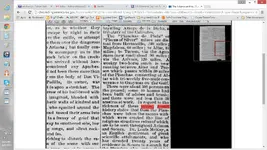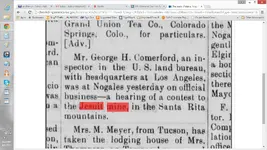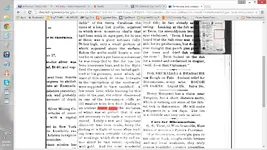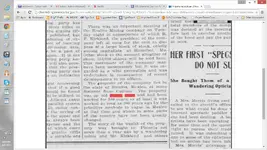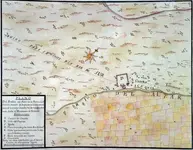What "supplies" were his mission Indians selling to raise raw silver in payment thereof? Why did father Saeta say in his very last letter, just before he was killed by his own Indians, that he could pay for the clothing he ordered in wheat or silver (and NOT in pesos, meaning raw silver bullion)? Kino himself even mentioned the Pima Indians whom offered to BUY a padre for themselves, using their own silver mines to pay for him! Are you saying that those silver mines were immediately shut down on the arrival of the padres? Who managed all of the financial affairs of the Indians at the missions? Was it not the padres?
We have Kino himself mentioning that he had shipped silver to Mexico city, and a respectable amount at that, not long after those same Pima Indians had offered to buy a padre, how much silver would it cost they asked. We have father Saeta mentioning that he would be able to pay in silver, although he had not been at his mission more than a few weeks (can't recall exactly offhand). We might note that his Indians at Caborca rose in rebellion and killed him as the first one to get killed, and later stated they were being mistreated by one of Saeta's foremen, a trusted Opata Indian.
We have the Catholic study, The Wealth of the Jesuits in Mexico, 1767, which lists some mines owned (openly) by the Jesuits; several researchers have turned up other instances where the Jesuits were mining, and always it was assumed to be a singular occurrence. We have smelting slag found at Guevavi and San Xavier del Bac, some of it right in the walls of Tumacacori and Bac in fact. Old mines were found by early American prospectors who claimed they were following Jesuit documents found in the missions, including several mines in the Santa Ritas, one in the Silver Bell mountains, several near Arivaca, and we have the gold mine near Guevavi which remains undiscovered today although mentioned by Nentvig in Rudo Ensayo. We have the letters of one Jesuit (from Switzerland) in which he complains of being in the Silver mountains, and yet has no silver ware to eat with, which by implication means there was an abundance of silver around him but no silverware, and the same source later complains that he cannot work the mines in safety because of the hostile Indian threat.
I just wonder what is your own definition of "extensive" mining operations. As far as I can see, the Jesuits were pretty active in searching for and developing mines, up to the limits of the manpower, technology, and threats of hostile Indians would allow. Clearly they also shipped at least some silver to Mexico City, intended for Rome, but this hardly accounts for the amount of workings and tailings as found by the early American prospectors.
I don't expect to convince you at this point Joe, however I am still curious about what you would mean to be 'extensive' mining, thanks in advance. I hope all is well with you folks, don't forget to spoil Smoky a little bit tonight with an extra treat for no reason.
Roy ~ Oroblanco




 Note also that Kino himself was shipping SILVER and NOT coins!
Note also that Kino himself was shipping SILVER and NOT coins! 